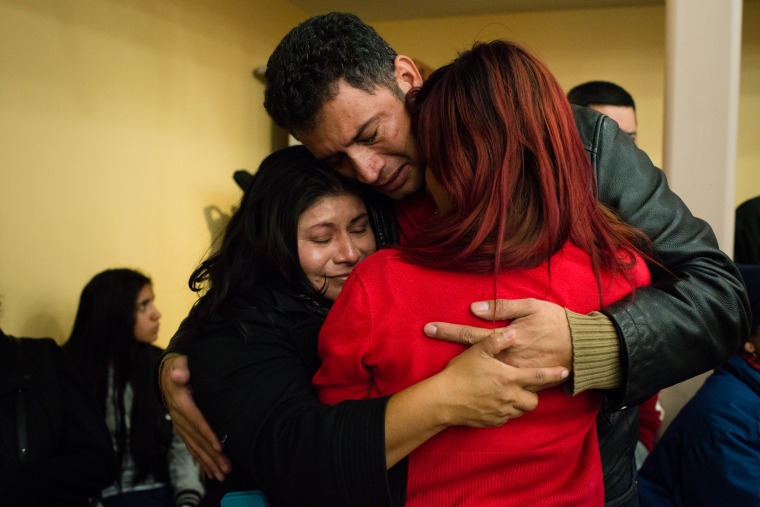Omar Siagha, 53, came to the United States from Colombia with his family when he was just eight months old. He knew little about his parents’ birth country. He couldn’t even read Spanish. But in 2011, he found himself confronting the possibility of being deported there.
Siagha was arrested after a family argument over a pet lizard. The tank allegedly broke by accident and cut his stepdaughter. His former partner subsequently wrote the immigration court a letter that he was never violent, but Siagha still faced an uphill battle.
“When you’re in front of a judge for the first time, they’re reading charges about things that happened to you years ago, and they make it seem like they just happened yesterday,” Omar told NBC News.
At the time, Siagha was also struggling with mental illness due to a head injury he’d received after being violently assaulted. He said the process of being apprehended and having to appear in court broke down his confidence. He said if it weren’t for his immigration attorney, he probably would have been deported.
But then he met lawyers from Brooklyn Defender Services. The New York Immigrant Family Unity Project (NYIFUP) is the nation's first public defender system for immigrants like Siagha facing deportation, an ongoing effor to guarantee legal representation.
“If I didn’t have that, I would have definitely been deported and I would have signed the papers,” he said, adding that during the four months he was held, he was administered the incorrect dosage of his medication and was losing his grip on reality. “I didn’t have no more in me to fight.”
The Vera Institute of Justice hopes to support NYIFUP with their Safety and Fairness For Everyone (SAFE) Cities Network initiative, which seeks to provide publicly funded legal representation to immigrants facing deportation in 11 jurisdictions across the country.
Oren Root, director of Vera’s Center on Immigration and Justice, started work on the NYIFUP program in 2010. Since then, the program has rolled out to Varick Street Immigration Court in New York City, where City Council funds were allocated to provide representation for low-income immigrants facing deportation.
After the program began in July 2014, Vera began collecting data on the cases where immigrants were paired with lawyers. The results, published in a report on Thursday, were staggering. Up to 12 times as many immigrants won their cases, provided they had a lawyer.
“It’s one of the most striking aspects of the report,” Root said. “It’s looking at people who were underrepresented immediately before NYIFUP, and only four percent of those people won those cases because they were unrepresented. But in the two and a half years NYIFUP was representing those same types of cases, they were projected to win 48 percent of them.”
The study also found immigrants in New York City are a major part of the city’s fabric, with the NYC Comptroller’s Office reporting that immigrants account for nearly one third of the city’s total gross product.
Siagha said without NYIFUP, the process of gathering the necessary documents for court would have been too arduous, and he said oftentimes immigration courts move quickly.
“Documents take time to get,” Siagha said. “You get a court date and the next available court date is three to four months later. They want certain papers and if you don’t have them, you look really bad in court. They’re so backed up that all the court cases are done so quickly, ten to fifteen minutes and if you don’t have everything organizes, it’s ‘next!’ All these things play against you and no one explains it to you."
Siagha said his worst nightmare was being torn away from his eight-year-old daughter. Root said it was common to see immigrants separated from their families.
“Those families would have been torn apart were it not for NYIFUP,” he said. “The impact of this project is tremendous and what it shows is that in places where there is no government-funded representation, many people who have a right to stay in the U.S. are deported.”
Siagha said his experience has motivated him to help others in a similar situation.
“A lot of people in immigration aren’t bad people. There’s a lot of good people,” Siagha said. “I’ve seen a lot of grown men cry every night. I want people like that to know there are people who care.”



